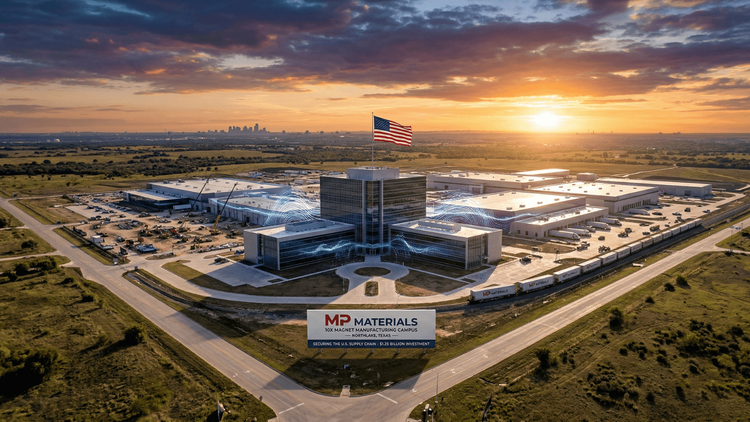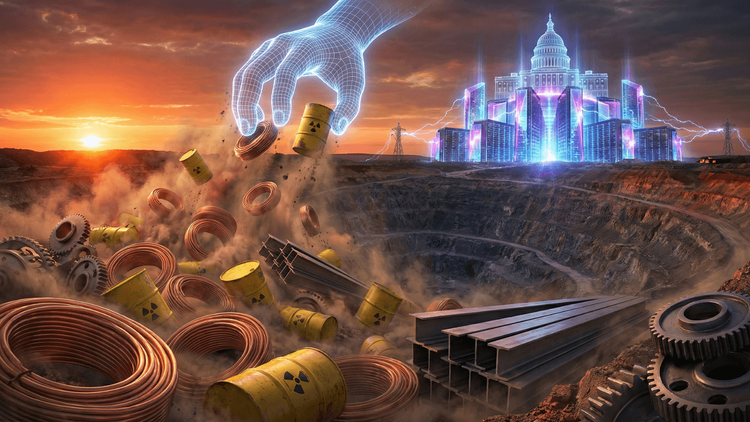Ukraine’s Riches Beneath the Surface: A Deal for Military Backing
Ukraine’s Rare Earth Elements: A Strategic Bargaining Chip for Military and Economic Power

Ukraine is sitting on a goldmine of rare earth elements, yet much of it remains locked beneath the surface, untouched and undeveloped. These elements are essential to modern technology, powering everything from military hardware to smartphones and electric vehicles. Now, as Ukraine fights to maintain U.S. military support, it is offering access to these critical minerals as a bargaining chip. The country’s leadership knows the stakes are high. Without continued aid from Washington, Ukraine’s war effort could falter, leaving it vulnerable to Russian advances. At the same time, the United States has been looking for ways to reduce its reliance on China for these vital resources. Ukraine’s vast reserves could provide the answer.
Why Rare Earth Elements Matter More Than Ever
Rare earth elements may not be household names, but they are the backbone of modern civilization. These 17 elements play a crucial role in everything from guided missile systems to renewable energy storage. The world is in a race to secure stable supplies, and for decades, China has dominated the market. Beijing’s stranglehold on rare earth production has forced the West to search for alternative sources.
Ukraine’s mineral-rich lands could change that equation. The country has significant deposits of titanium, lithium, and uranium, all of which are critical to both defense and high-tech industries. Titanium is widely used in aerospace engineering and military applications. Lithium powers electric vehicle batteries and renewable energy grids. Uranium remains a cornerstone of nuclear power and defense technology.
Ukraine is not just offering access to these minerals—it is offering the West an opportunity to break free from Chinese dominance in the sector. Washington has made no secret of its desire to diversify supply chains, and Kyiv is pushing to position itself as the perfect partner.
The Proposal That Could Reshape Ukraine’s Future
Ukrainian President Volodymyr Zelenskyy has put forth a proposal that could change the course of his country’s economy. The deal is simple: in exchange for continued military aid, Ukraine would open its rare earth industry to U.S. companies, allowing them to invest, extract, and process these critical minerals.
Former U.S. President Donald Trump previously voiced interest in securing new sources of rare earth elements, and Zelenskyy’s offer aligns perfectly with Washington’s long-term strategic goals. If the agreement goes through, it could mean billions of dollars in investment for Ukraine’s mineral industry. It could also mean a steady supply of rare earth elements flowing to the United States, reducing dependency on China and ensuring that American defense manufacturers have the materials they need.
This is not just about economics. A formal partnership between Ukraine and the U.S. in the rare earth sector would deepen political and military ties between the two nations. It would give Ukraine leverage in international negotiations, making it harder for Western allies to turn away in moments of crisis. In a world where access to critical minerals increasingly determines geopolitical influence, Ukraine’s mineral wealth could become one of its greatest strategic assets.
Challenges That Could Derail the Plan
For all its promise, the plan is not without challenges. Ukraine’s rare earth deposits remain largely untapped due to war and outdated mining policies. The country has never developed a strong geological survey infrastructure, meaning that much of its mineral potential is still unknown. Reliable data on reserves is scarce, making it difficult for foreign investors to assess risks.
Security is another pressing concern. Nearly half of Ukraine’s metallic mineral resources are in regions currently occupied by Russia. Even in government-controlled territories, the ongoing war poses risks for any major industrial operation. No company will commit to large-scale mining projects without guarantees that their investments will be protected. If Ukraine wants to unlock its rare earth potential, it will need to ensure that its security situation is stable enough for long-term development.
A Global Shift in the Making
If Ukraine can overcome these obstacles, the impact could be massive. The European Union has already recognized Ukraine as a potential supplier of more than 20 critical raw materials, signaling strong interest from the West. If Kyiv can secure investment and ramp up production, it could position itself as a key player in the global rare earth market.
This would be a game-changer for both Ukraine and its allies. For Washington, it would mean greater energy security, a strengthened military-industrial complex, and a strategic advantage over China. For Ukraine, it would mean economic growth, deeper ties with the U.S., and a crucial lifeline in its ongoing war effort.
The road ahead is uncertain, but one thing is clear: the world is entering a new era where access to rare earth elements will define economic and military power. Ukraine has the resources. The question now is whether it can turn them into an asset that secures its future.
Conclusion
Ukraine’s rare earth elements could prove to be the missing link in securing long-term military aid from the United States. By leveraging its vast mineral wealth, Kyiv is not only seeking investment but also reinforcing its position as a critical Western ally. With China maintaining its grip on rare earth production, the opportunity for Ukraine to step in as a major supplier has never been more urgent. The success of this strategy depends on security, infrastructure, and the willingness of international partners to invest in a war-torn nation. If Ukraine can navigate these challenges, its untapped resources could become one of the most valuable assets in modern geopolitics.






